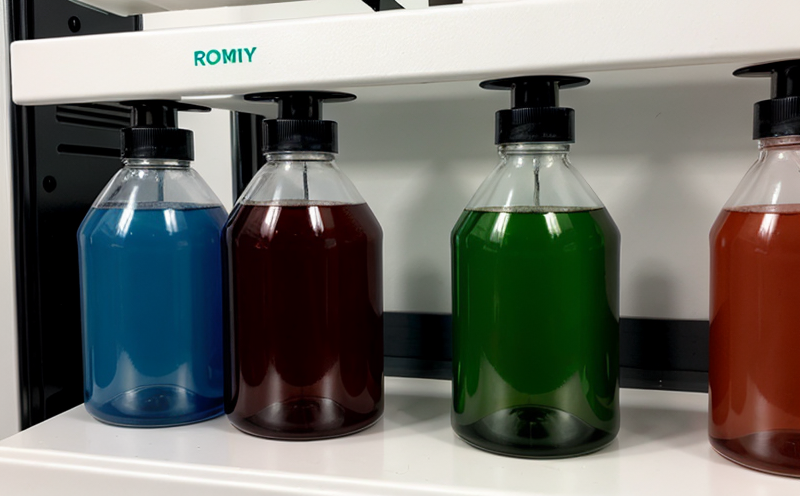ASTM D618 Conditioning Reactivity Testing of Plastics
The ASTM D618 standard is a critical tool in polymer characterization and material performance evaluation. This test method evaluates the reactivity and conditioning effects on plastics through exposure to controlled environmental conditions, followed by a quantitative assessment using dynamic shear rheometry (DSR).
Understanding the reactivity of plastics under specific conditions can significantly impact product design, quality control processes, and regulatory compliance. The ASTM D618 test is particularly important for materials that undergo chemical changes due to exposure to heat, moisture, or other environmental factors.
The reactivity testing helps ensure that plastic products meet the required performance standards in various industrial applications, such as automotive parts, medical devices, and construction materials. By providing a detailed analysis of how plastics behave under different conditions, this test ensures consistent quality across manufacturing processes and enhances product reliability.
Dynamic shear rheometry (DSR) is used to measure the viscoelastic properties of materials during deformation, which can help determine their reactivity. This technique allows for precise quantification of material changes over time, enabling accurate assessment of the conditioning effects on the tested samples.
The ASTM D618 test method involves subjecting polymer specimens to specified environmental conditions and then measuring their properties using DSR. The key steps in this process include selecting appropriate specimen sizes, preparing them according to standard procedures, and exposing them to controlled temperature and humidity levels for a predetermined period.
After conditioning, the samples are tested using DSR to evaluate their viscoelastic behavior. This involves applying shear stress to the sample at various frequencies while monitoring the resulting shear strain. The obtained data provides insights into the material's response to external stimuli, such as temperature fluctuations or mechanical loading.
The results of ASTM D618 testing are typically reported in terms of storage modulus (G''), loss angle tangent (tan delta), and complex viscosity (eta*). These parameters reflect the material's elastic and viscous components, respectively. By analyzing these values, engineers can gain valuable information about the conditioning effects on the tested plastics.
For quality managers and compliance officers, ASTM D618 testing offers a reliable way to ensure that plastic products meet industry standards and regulatory requirements. This test method helps in identifying potential issues early in the development process, allowing for necessary adjustments before mass production begins.
Why It Matters
The ASTM D618 Conditioning Reactivity Testing of Plastics plays a vital role in ensuring consistent quality and reliability across various industries. By providing detailed insights into how plastics behave under different environmental conditions, this test method helps manufacturers make informed decisions regarding material selection and processing parameters.
For R&D engineers working on new polymer formulations or modifications to existing materials, ASTM D618 offers a valuable tool for optimizing product performance. Understanding the reactivity of plastics allows researchers to fine-tune their designs to achieve desired properties while minimizing unwanted side effects.
In addition to its technical benefits, ASTM D618 testing also contributes to improving environmental sustainability by promoting more efficient use of raw materials and reducing waste generation during manufacturing processes.
Scope and Methodology
| Aspect | Description |
|---|---|
| Test Specimens | ASTM D618 requires the use of small specimens, typically 25 mm × 25 mm plates or cylinders with a thickness ranging from 3 to 6 mm. |
| Environmental Conditions | The test involves exposing the specimens to controlled temperature and humidity levels for up to 104 hours, depending on the specific requirements of the application. |
| Dynamic Shear Rheometry (DSR) | This technique is used to measure the viscoelastic properties of materials during deformation. It involves applying shear stress to the sample at various frequencies while monitoring the resulting shear strain. |
Benefits
- Ensures consistent quality and reliability across manufacturing processes.
- Identifies potential issues early in the development process, allowing for necessary adjustments before mass production begins.
- Optimizes product performance by fine-tuning polymer formulations or modifications to existing materials.
- Promotes more efficient use of raw materials and reduces waste generation during manufacturing processes.
- Enhances environmental sustainability through improved material utilization practices.
- Aids in regulatory compliance by ensuring that plastic products meet industry standards and requirements.





